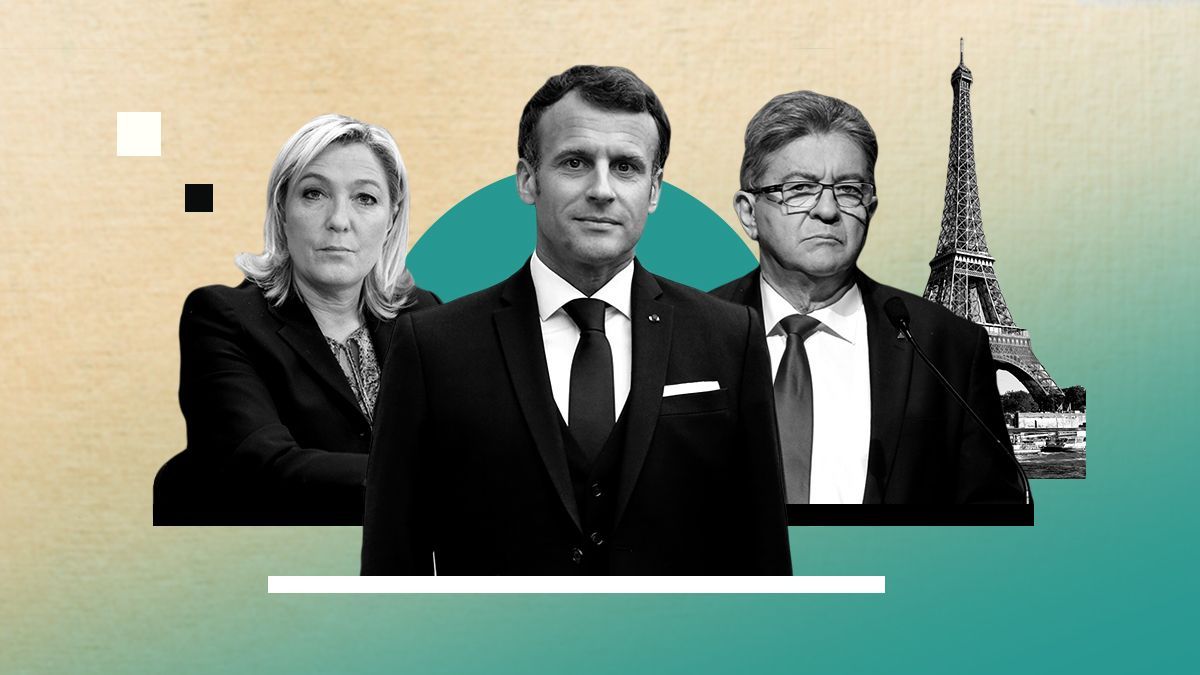The political landscape of France is characterized by high polarization, with several parties competing for public support. Based on the report of French colleagues, 24 Channel analyzed the activities of the country's main political forces, their electoral results, and prospects for the upcoming 2023 European Parliament elections.
Interesting Russia bought former French PM's loyalty with positions in oil companies: confidential documents
Macron’s support among voters
Firstly, the French President Emmanuel Macron was elected for his second term in May 2022 as a centrist candidate under the banner of La République En Marche (LREM), a political movement he founded in April 2016.
Macron's platform is focused on pro-European, socially liberal and pro-business policies, and his victory marked a departure from the traditional left-right divide in French politics.
Emmanuel Macron supports Ukraine in the war against Russia. France provided Ukraine with weapons and backed the EU sanctions against Russia. Despite initial criticism of Macron for the slowness in making decisions on support to Ukraine, Macron's government is a strong ally of Ukraine.
Macron supports Ukraine / photo credit Forbes
Left radicals and pro-European socialists
The main party on the centre-left of the political spectrum is the Parti Socialiste (PS), which governed France under François Hollande from 2012 to 2017. However, the Socialist party suffered a severe defeat in the 2017 and 2022 presidential elections. Its candidate, Benoît Hamon, received only 6.3% of the vote in the first round in 2017, and Anne Hidalgo - only 1,7% in 2022.
Former Minister of Education Benoit Amon / photo Le Figaro
The Socialist party has struggled to reinvent itself and regain its electoral footing, facing competition from other far-left forces such as La France Insoumise (LFI) and the Parti Communiste Français (PCF).
What is known about the LFI led by Jean-Luc Mélenchon
It's a left-wing populist movement that emerged after the 2016 presidential election. Its platform focuses on anti-EU, anti-globalization and anti-establishment themes. It has tapped into the discontent and anger of many French voters who feel left behind by the current economic and political system. In the 2022 presidential election, Mélenchon received 21,95% of the vote in the first round.He narrowly failed to make it to the run-off. He made several statements which are in line with the Kremlin narratives in Europe.
Jean-Luc Mélenchon is a left-wing populist / EPA photo
Ultra-left and pro-Russian Jean-Luc Mélenchon
Jean-Luc Mélenchon is a French politician and the leader of the left-wing La France Insoumise party. He has been accused of spreading Russian propaganda in France and promoting pro-Russian views. Mélenchon has been critical of Western sanctions against Russia and has expressed support for Russia’s annexation of Crimea. He has also been a vocal critic of NATO and the European Union, and has called for closer ties between France and Russia.
Jean-Luc Mélenchon’s statements regarding Russia’s war against Ukraine have been controversial and have generated criticism from some quarters. While he has expressed concern over the situation in Ukraine, he has also been critical of what he sees as Western interference in the conflict and has been accused of downplaying Russia’s role in the conflict.
Support for right-wing radicals and right-wing
On the right of the political spectrum, the main party is Les Républicains (LR), which emerged from the ashes of the centre-right Union pour un Mouvement Populaire (UMP) in 2015. LR's platform is based on traditional conservative values such as law and order, family values and free enterprise. It has been a significant player in French politics for many years.
However, LR has also struggled to maintain its relevance and cohesion, facing internal divisions and challenges from other right-wing forces such as the far-right Rassemblement National (RN) and the liberal-conservative movement Agir.
The RN, formerly the Front National, is a far-right nationalist party led by Marine Le Pen. Its platform focuses on anti-immigration, anti-EU and law-and-order topics. In foreign policy, it supports Russia, and Le Pen had taken a huge loan from a Russian bank for her campaign, after she visited Moscow and met Putin in 2016.
Marine Le Pen and Putin have known each other for a long time / photo RIA
Le Pen's pro-Russian and anti-EU "National Rally"
Le Pen has been known for her pro-Russian stance in foreign policy, advocating for closer ties between France and Russia and criticising Western sanctions against Russia. She has also been accused of spreading Russian propaganda and being influenced by the Kremlin. Le Pen has visited Moscow several times, meeting with Russian officials and expressing support for Russian policies and international law violations, such as the annexation of Crimea.
- The proportion of French people who say they disagree (57%) is at its lowest level since 1984. The share of French people who consider this party a danger to democracy in France is down to 46% (down 2 points), as it has been for the past five years and reached one of its lowest levels in 40 years.
- More than four out of ten French people (42%) believe the party has become more moderate in recent years. The proportion rises to 67% among LR sympathisers and 70% among RN sympathizers. 40% of those surveyed believe that the RN is a party capable of participating in a government, which is the conviction of more than half of LR sympathisers (51%, 19 points more than last year).
Latest polls – Ipsos
In terms of polls, the latest surveys suggest that Macron and LREM remain the most popular force in French politics, with around 25-30% of the vote. However, their support has declined somewhat since the last election. They face significant opposition from other parties on both the left and right sides. The RN and Le Pen are also vital.
In February 2023, in the context of high tensions around the pension reform, the popularity rating of France's president and prime minister, as measured by the monthly IFOP barometer, continued to erode. With only 32% of French people satisfied with his action (-2 points), Emmanuel Macron's popularity is eroding further, reaching its lowest level since February 2020, before the Covid crisis.
At the same time, the Ipsos political poll conducted in a tense context around the pension reform indicates that the popularity rating of the president of the Republic registered a further decline of 3 points to 36% of favourable opinions.
His Prime Minister is no better off: Elisabeth Borne's popularity has dropped by 3 points to 29% of favourable opinions, her lowest level since she took office at Matignon last May.
Political Leaders Ranking – January 2023, percentage of favourable opinions
- Edouard PHILIPPE 45% (former prime minister of Macron's government)
- Marine LE PEN 36% (leader of the far right, pro-Russian)
- Bruno LE MAIRE 34% (centre right)
- Olivier VERAN 33% (former Minister of Health in Macron's government)
- Nicolas SARKOZY 31% (former president, centre-right)
- Martine AUBRY 29% (centre-left, mayor of Lille)
- Gabriel ATTAL 28% (activist, then socialist politician, city councillor of Vanves)
- Xavier BERTRAND 28% (former minister of health, former secretary general of the UMP, centre-right)
- François BAYROU 28% (centrist, former presidential candidate)
- Gérald DARMANIN 28% (former Minister of the Interior in Macron's government)
Far right and pro-Russia Eric Zemmour
Eric Zemmour is a French journalist, writer, and political commentator known for his controversial views on immigration, Islam, and French identity. Zemmour has been accused of spreading pro-Russian propaganda in his commentary on foreign affairs. He has been known to express support for Russian President Vladimir Putin and has criticised Western sanctions against Russia.
Zemmour has also been linked to Moscow through his appearances on RT (formerly Russia Today), a Russian state-owned news channel. Zemmour has defended his appearances on RT, arguing that he is simply seeking to reach a wider audience.
Eric Zemmur is a pro-Putin politician / dpa photo
Conservative and pro-Russia Nicolas Dupont-Aignan
Nicolas Dupont-Aignan was candidate in the French presidential elections three times, but each time failed in the first round. He's the head and the founder of the conservative party "Debout la France" (“Stand up France”). He is a member of the French National Assembly. Dupont-Aignan has been known for his pro-Russian views, advocating for closer ties between France and Russia and criticizing the sanctions imposed on Russia by the West after the annexation of Crimea.
He has also been accused of spreading Russian propaganda and being too lenient on the Kremlin. His support among the French voters is around 1-2%.
Nicolas Dupont-Aignan also has a good relationship with Marine Le Pen / photo Le Figaro
New leadership for centre-right
The centre-right got its new leader in December. Eric Ciotti was elected president of the party Les Républicains. The Alpes-Maritimes deputy faced the LR senators' leader, Bruno Retailleau. Very firm on immigration, Eric Ciotti won the second round with 53.7% of the vote.
His main goal is to define who will be the party's candidate for the presidential elections. In his project, the president of the Auvergne Rhône-Alpes region, Laurent Wauquiez, must "embody this hope".
We must have a candidate soon enough" for the presidential elections of 2027. I support in this process Laurent Wauquiez who combines many assets to recover the right,
– said Mr Ciotti.
However, there are still at least 3 years before the centre-right will need to select the candidate for the next presidential election in an attempt to get back to power.
How to counteract Russian propaganda
Since a number of pro-Russian parties from both the left and right political spectrum have significant support among voters, there is a risk of their increased presence in the French parliament and the European Parliament.
For instance, the far-right Le Pen has a support of 32%, the far-left Melanchon - 26%, Zemmour - 19%, and Dupont-Aignan - 2%. On the other hand, amidst the crisis related to the economic recovery after quarantine measures and unpopular reforms, the support for Macron's leading party is decreasing.
Obviously, Moscow mobilizes its resources, including informational ones, to help pro-Russian forces increase their support before the European Parliament elections.
Thus, after the ban on the Russian state propaganda TV channel RT in France and the termination of its activities, new pro-Russian media - Omerta, Reseau International and a number of YouTube channels - have taken up the baton. Such actions require counter-propaganda and dissemination of information about the danger of far-right and far-left "friends of Moscow" for their discrediting.








